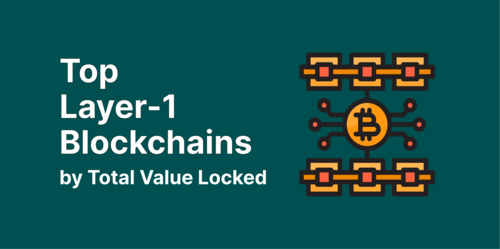

Kava
KAVA Price
How is the price of Kava (KAVA) calculated?
The price of Kava (KAVA) is calculated in real-time by aggregating the latest data across 37 exchanges and 55 markets, using a global volume-weighted average formula. Learn more about how crypto prices are calculated on CoinGecko.
Kava Price Chart (KAVA)
| 1h | 24h | 7d | 14d | 30d | 1y |
|---|---|---|---|---|---|
| 0.6% | 2.5% | 0.6% | 4.6% | 25.8% | 22.7% |
KAVA Converter
|
Market Cap
Market Cap = Current Price x Circulating Supply
Refers to the total market value of a cryptocurrency’s circulating supply. It is similar to the stock market’s measurement of multiplying price per share by shares readily available in the market (not held & locked by insiders, governments) Read More |
$724,580,706 |
|---|---|
|
Market Cap / FDV
The proportion of current market capitalization compares to market capitalization when meeting max supply.
The closer the Mkt Cap/FDV to 1, the closer the current market capitalization to its fully diluted valuation and vice versa. Learn more about Mkt Cap/FDV here. |
1.0 |
|
Fully Diluted Valuation
Fully Diluted Valuation (FDV) = Current Price x Total Supply
Fully Diluted Valuation (FDV) is the theoretical market capitalization of a coin if the entirety of its supply is in circulation, based on its current market price. The FDV value is theoretical as increasing the circulating supply of a coin may impact its market price. Also depending on the tokenomics, emission schedule or lock-up period of a coin's supply, it may take a significant time before its entire supply is released into circulation. Learn more about FDV here. |
$724,580,706 |
|
24 Hour Trading Vol
A measure of a cryptocurrency trading volume across all tracked platforms in the last 24 hours. This is tracked on a rolling 24-hour basis with no open/closing times.
Read More |
$6,410,621 |
|
Circulating Supply
The amount of coins that are circulating in the market and are tradeable by the public. It is comparable to looking at shares readily available in the market (not held & locked by insiders, governments).
Read More |
1,082,856,257
|
|
Total Supply
The amount of coins that have already been created, minus any coins that have been burned (removed from circulation). It is comparable to outstanding shares in the stock market.
Total Supply = Onchain supply - burned tokens |
1,082,856,257 |
KAVA Historical Price
| 24h Range | $0.6478 – $0.6782 |
|---|---|
| 7d Range | $0.6434 – $0.7061 |
| All-Time High |
$9.12
92.7%
Aug 30, 2021 (over 2 years)
|
| All-Time Low |
$0.2871
133.3%
Mar 13, 2020 (about 4 years)
|
How do you feel about KAVA today?
What Is Kava (KAVA)?
Kava is a Layer-1 blockchain that combines the speed and interoperability of Cosmos with the developer power of Ethereum.
The Kava Network uses a developer-optimized co-chain architecture. The Ethereum Co-Chain enables support for EVM smart contracts while the Cosmos Co-Chain enables the lightning-fast Tendermint consensus engine and the Inter Blockchain Communication Protocol (IBC).
The two co-chains are connected by a translator module that enables them to interoperate seamlessly, bringing the two most used blockchain development environments together in a single, scalable network.
The Kava Network features a native governance and utility token, KAVA, that can be staked by validators or delegated to validator nodes. Stakers and delegators earn 37.5% of all KAVA emissions as a reward for securing the network. Kava stakers also have voting rights in network governance proposals.
What Makes Kava Unique?
The Kava Network utilizes a developer-optimized co-chain architecture that delivers the development power of Ethereum with the speed, interoperability, and low transaction fees of Cosmos in a single network.
The Kava Network empowers developers with:
-
Flexible Deployment: Developers can build and deploy on either of the two most used permissionless execution environments in the world using the EVM-compatible Ethereum Co-Chain or the Cosmos Co-Chain.
-
On-Chain Incentives: A transparent and decentralized on-chain incentive model ensures that the best developers and projects in every Web3 vertical (including DeFi, GameFi, and NFTs) are rewarded for their contributions with a proportional share of the value and governance of the network.
-
Seamless Interoperability: Developers can deploy Solidity smart contracts that interoperate seamlessly with Cosmos SDK protocols in the same network, connecting their project to every major asset and millions of users.
How Is the Kava Network Secured?
Kava is built on Cosmos and uses a Tendermint-based proof-of-stake (POS) consensus mechanism to ensure the integrity of the network.
The Kava Network uses a network of validator nodes for confirming transactions. These validator nodes must put up collateral to take up the duty of validating transactions. If validators misbehave or fail to meet rigorous minimum requirements, their stake will be penalized — thereby incentivizing validators to remain honest and efficient.
Kava holders can run a staking node to earn KAVA rewards directly from the protocol. However, only the top 100 Kava nodes (also known as validators) are eligible to receive these rewards. Beyond this, KAVA holders can stake their tokens on various compatible exchange platforms, like Binance, Kraken, Huobi Pool, and in wallets like Trust Wallet, Cosmostation Wallet, and Keplr.
Multiple independent blockchains and crypto security firms have audited Kava’s smart contracts, including CertiK, B-Harvest, and Quantstamp. To date, no vulnerabilities have been found.
Kava Governance
The KavaDAO is a fully decentralized autonomous organization (DAO) governing the Kava Network. KAVA stakers and validators secure and run the network; thus, their responsibility is to table and vote on proposals that affect the Kava Network.
These changes can take the form of smart contract modifications, adjustments to the global debt limit, the addition or removal of collateral assets, among other considerations. Voting can be conducted either directly or delegated to validators. The numerous implemented and proposed changes are accessible via Kava’s governance page.
Where can you buy Kava?
KAVA tokens can be traded on centralized crypto exchanges. The most popular exchange to buy and trade Kava is Binance, where the most active trading pair KAVA/USDT has a trading volume of $1,469,537.29 in the last 24 hours. Other popular options include BingX and MEXC.
What is the daily trading volume of Kava (KAVA)?
The trading volume of Kava (KAVA) is $6,410,620.61 in the last 24 hours, representing a -16.00% decrease from one day ago and signalling a recent fall in market activity.
What is the all-time high for Kava (KAVA)?
The highest price paid for Kava (KAVA) is BTC0.0004639, which was recorded on Aug 30, 2021 (over 2 years). Comparatively, the current price is -92.70% lower than the all-time high price.
What is the all-time low for Kava (KAVA)?
The lowest price paid for Kava (KAVA) is BTC0.059278, which was recorded on Mar 13, 2020 (about 4 years). Comparatively, the current price is 133.30% higher than the all-time low price.
What is the market cap of Kava (KAVA)?
Market capitalization of Kava (KAVA) is BTC11,530.9890 and is ranked #122 on CoinGecko today. Market cap is measured by multiplying token price with the circulating supply of KAVA tokens (1.1 Billion tokens are tradable on the market today).
What is the fully diluted valuation of Kava (KAVA)?
The fully diluted valuation (FDV) of Kava (KAVA) is BTC11,530.9890. This is a statistical representation of the maximum market cap, assuming the maximum number of 1.1 Billion KAVA tokens are in circulation today. Depending on how the emission schedule of KAVA tokens are designed, it might take multiple years before FDV is realized.
How does the price performance of Kava compare against its peers?
With a price decline of -0.60% in the last 7 days, Kava (KAVA) is underperforming the global cryptocurrency market which is down -0.20%, while underperforming when compared to similar Layer 1 (L1) cryptocurrencies which are up 5.70%.
Kava Markets
| # | Exchange | Pair | Price | Spread | +2% Depth | -2% Depth | 24h Volume | Volume % | Last Updated | Trust Score | |
|---|---|---|---|---|---|---|---|---|---|---|---|
| 1 |
CEX
|
$0.670560786474538300000000000000000000000 | 0.01% | $380,008 | $419,022 | $1,469,537 | 22.92% |
Recently
|
|||
| 2 |
CEX
|
$0.668434159319227800000000000000000000000 | 0.03% | $379,925 | $334,397 | $52,768.00 | 0.82% |
Recently
|
|||
| 3 |
CEX
|
$0.669908911373394500000000000000000000000 | 0.01% | $143,753 | $174,711 | $55,886.00 | 0.87% |
Recently
|
|||
| 4 |
CEX
|
$0.669860409645931600000000000000000000000 | 0.06% | $366,807 | $436,975 | $79,944.00 | 1.25% |
Recently
|
|||
| 5 |
CEX
|
$0.6688334628791557000000000000000000000 | 0.04% | $212,008 | $206,553 | $98,283.00 | 1.53% |
Recently
|
|||
| 6 |
CEX
|
$0.670370829008940600000000000000000000000 | 0.09% | $125,178 | $174,492 | $1,276,597 | 19.92% |
Recently
|
|||
| 7 |
CEX
|
$0.6695000000000000000000000000000000000000000000000 | 0.07% | $70,002 | $77,602 | $64,782.00 | 1.01% |
Recently
|
|||
| 8 |
CEX
|
$0.66733607452942620000000000000000000000 | 0.06% | $54,560 | $59,412 | $85,719.00 | 1.34% |
Recently
|
|||
| 9 |
CEX
|
$0.6700707525411658000000000000000000000000 | 0.03% | $24,226 | $23,784 | $219,161 | 3.42% |
Recently
|
|||
| 10 |
CEX
|
$0.6689000000000000000000000000000000000000000000000 | 0.12% | $33,783 | $137,632 | $48,768.00 | 0.76% |
Recently
|
|||
Kava Guides



























 Or check it out in the app stores
Or check it out in the app stores
